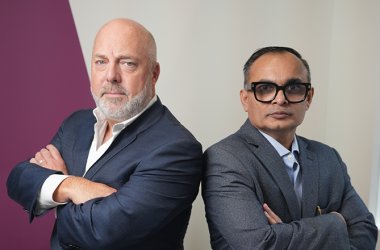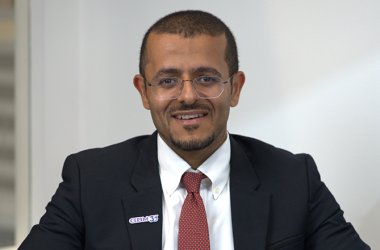CNME Editor Mark Forker spoke to Sascha Giese, Head Geek at SolarWinds, to find out why he believes the implementation of AI and Machine Learning can help companies manage their data and become more secure, despite the resistance from some quarters over the use and cost of the technology.

Giese is a hugely respected figure within the IT community and SolarWinds is a global leader when it comes to equipping enterprises with the solutions and tools needed to effectively run their IT infrastructure and environments.
We know that over the last 18 months there has been seismic changes in the landscape of the IT domain, not only in the Middle East, but globally – as a direct consequence of the COVID-19 pandemic. However, as we have now become adjusted to the complexities of our current climate, the question now is what does the future look like over the next 12 months?
We know that data volumes have grown exponentially, and that trend is expected to grow exponentially over the next 3-5 years. However, with many businesses struggling to get a grip on managing their data volume, we asked Giese what he believed companies needed to do to become better at managing their data.
“There are many different strategies that companies can adopt to better manage their data volume, but essentially it all comes down to their budget. For many companies there is still a lot of uncertainty regarding the future due to the ongoing issues with the pandemic, and that has resulted in many budgets being reduced significantly. Some companies are attempting to be as cost neutral as possible and are embracing data-ops theories, which allows you to merge different teams working together to get a better handle on the massive amount of data being collected, and that makes it easier for a data consumer to engage with their tools and solutions, and that is typically cost neutral. The other way to manage your data could be through the implementation of AI and Machine Learning,” said Giese.
Whilst Giese is a strong advocate for the implementation of AI into the IT infrastructure and operations of businesses, he does concede that the technology comes at a cost, however, he believes companies should adopt it to be able to meet the challenges they face in the digital economy.
“On a very basic level it is a calculation, but you need to determine how many people you need for a specific task and examine how much does that cost. For example, data analysts don’t come cheap and if you need between 30-50 of them every year, how much does that cost you as a business? On the other hand, you might have a machine learning or AI system that again doesn’t come cheap, but at some stage there is this break-even point, where the calculation goes into one direction and at that point it makes sense to start going down the route of AI implementation,” said Giese.
A report recently commissioned by Gartner indicated that more and more governments are spending on AI, but in Europe there remained a high-level of skepticism amongst the workforce in relation to the integration of AI into everyday operations. Giese believes the main difference between the attitudes between the two markets, is that the Middle East is more ‘open’.
“I think the Middle East is a little bit more open because the whole topic of IT is a lot younger compared to Europe. If you think about automation there was a huge amount of resistance towards that from network administrators because people thought it was going to take their job, and there were trust issues as to what the script was doing because they hadn’t written it themselves. 5% of AI are self-written, and everything else is bought off the shelf, so you never know who created those things, so there is a huge trust issue. The famous saying is if I want do something right then I am going to have to do it myself and I think this mindset applies to a lot of IT personnel when it comes to AI,” said Giese.
Security is a huge challenge in the IT ecosystem, and Giese made the argument for the introduction of AI in terms of enabling companies to be better protected from cyber threats.
“We know that large teams in a security operations center are tasked with the responsibility of managing huge swathes of data and they need to compare all this data to make sense of it, now we know that humans can do this, but they can not do it as quickly as a machine. A machine can understand thousands of different performance indicators and metrics in a much shorter time frame. Machine Learning essentially means that someone was teaching a machine something, so we basically tell a machine if this and this happens to do this, and that creates an if and then scenario. If something happens then a machine is much faster in terms of applying actions than you or me, or any security analyst. There are many, many use cases for AI but its implementation in your operations are key to bolster your security,” said Giese.





